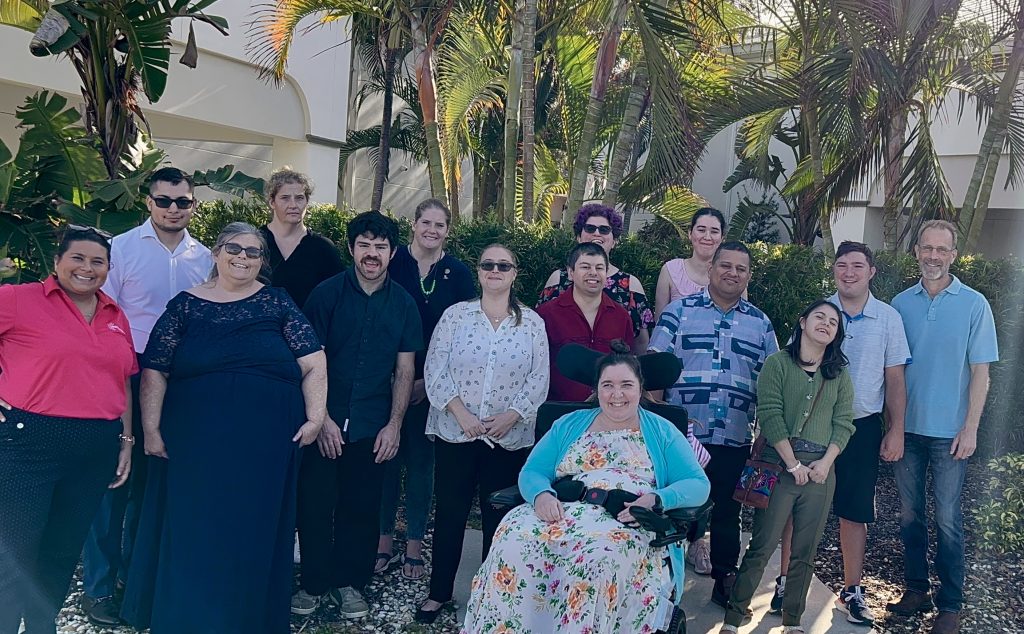Picture a world where everyone—no matter their abilities or challenges—has the freedom to thrive. Not just get by, yet live fully, with purpose, dignity, and joy. A world where support isn’t whispered about or hidden in shame, yet celebrated as a sign of strength. That world isn’t far off. Yet to get there, we need to rewrite the way we think about assistance.
The Cane That Stayed in the Closet
A dear friend of mine recently took a hard fall. He knew his balance had been getting worse, but even after the incident, he was reluctant to use a cane. Why? Because deep down, he felt that needing it somehow made him “less.”
That quiet discomfort isn’t rare. Whether it’s a cane, a hearing aid, a communication device, or extended test time in school, many people hold back from using the very tools that could give them more freedom and ease. This hesitation has a name: internalized ableism—when societal judgments become personal shame.
But let’s be clear: reaching for support doesn’t mean you’re giving up. It means you’re choosing to keep going.
The Tools of Thriving
Think about it: no one questions a surgeon’s need for a scalpel. We don’t shame a pilot for needing radar, or a CEO for relying on a team and software. So why do we sometimes look sideways at someone who uses a wheelchair, hearing aid, or voice app?
Support tools aren’t signs of weakness—they’re bridges to independence. They empower people to learn, to work, to socialize, to create, to contribute. The World Health Organization has said it clearly: assistive technology helps people participate more fully in life.
What Helps One of Us Often Helps All of Us
Here’s the beautiful irony: many things created for people with additional needs now benefit everyone. Curb cuts help parents with strollers. Voice-to-text helps busy professionals on the go. Closed captions are now used in noisy restaurants, gyms, and waiting rooms.
Accessibility doesn’t just improve life for some—it raises the bar for everyone.
Imagine a world designed from the start with inclusion in mind—where using assistance is just normal, like wearing glasses or using GPS. That world is possible. And we’re already halfway there.
Accessibility Is Smart—And Good for Business
Inclusion isn’t just the right thing to do—it’s the smart thing. Studies show that companies that invest in accessibility see:
Better retention
Higher customer satisfaction
Why? Because when people feel seen and supported, they show up fully—and that benefits everyone, from teammates to bottom lines.
What You Can Do—Right Now
Whether you’re an individual or a business leader, you have the power to make a difference:
Individuals:
Challenge the shame. Embrace the tools that help you thrive.
Speak up. If you see a barrier—at school, at work, in your neighborhood—say something.
Share your story. Every conversation helps someone else feel less alone.
Businesses:
Hire inclusively. Make space for all kinds of minds and bodies.
Design for everyone. Build environments where people can move, communicate, and work comfortably.
Use the tools. Bring in tech that helps your team work better—especially those with additional needs.
Let’s Celebrate Support, Not Hide It
Asking for help? That’s not weakness. That’s courage. That’s wisdom. That’s choosing life.
So to anyone out there who feels ashamed of needing assistance: You are not broken. You are resourceful. You are worthy of thriving.
And to the rest of us: It’s time to make sure our schools, workplaces, and communities say the same.
Let’s build a world where support is seen as smart, not shameful. Where assistance is a badge of strength, not a burden. Where every person—regardless of their needs—has what they need to live fully, confidently, and joyfully.
We already have the tools. Now, let’s shift the mindset.






Responses